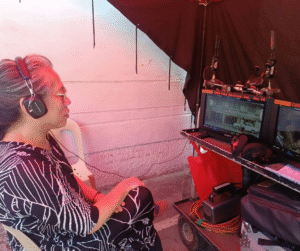Danna Quinto
It is a well-known, and frankly sad statistical finding, that January is the peak time for filing divorce. In the legal world, it is known as “divorce month.” While couples may already be in fractured relationships for months or even years, they often wait to spend “one last Christmas for the children” before they make the decision to separate. The stress of preparing for Christmas and being cooped up with family over the holidays becomes the tipping point for many couples. In the UK, women initiate 63 per cent of divorces while in the US, it is around 70 per cent.
The end of a relationship does not always have to be acrimonious. In fact, it is hoped that contact between parents and children can be agreed upon within the family except in circumstances where the other parent poses a safeguarding risk to the child.
If you are in a situation where you feel that your children will be genuinely safe in the hands of the other parent, and you wish to have some sort of guidance as to how to start a dialogue and a pragmatic road map to this situation, then here is my advice.
The guiding principle: The best interest of the children

This may sound too obvious and almost insulting to parents but for the sake of clarity and avoidance of doubt, let me set out the basic and straightforward law governing contact of parents and children. The test for any decision should always be: What is in the best interest of the children? Is it in their best interest to have the love and support of both the maternal and paternal sides of the family? Is it in their best interest to know about their heritage, visit relatives abroad, and develop and learn about their identity through these overseas holidays to their parent’s country of birth? Is it in their best interest to spend time with their father or their mother? Is it in their best interest to be separated from their siblings? Is it in the best interest of the child not to have any relationship at all with one of his or her parents? When you make co-parenting decisions based on the best interest of your children, your discussions may be less combative and more child-focused.
You will still be in the same ecosystem – you will forever share a profound love for another person: your child. Hence, the sooner that you find a way, if at all possible, to have a civil and diplomatic communication channel with your co-parent, the better for your child.
Plan what will work for your family
Think about how you divided childcare whilst you were together with your soon-to-be former spouse. It is most likely that the “new regime” would be similar to that unless there is a dramatic change in routine, work schedule, or general circumstances. The important thing is to look at the children’s scheduling needs (education, day-to-day, and extracurricular activities) and find out how you and the other co-parent can best meet those needs.

It would be helpful for both parties to review these at the start of the calendar year and the start of the academic year. Try to complete the “Parenting Plan” set out by CAFCASS (an independent government body that assists the court in children’s contact cases). You need to look at special dates – birthdays, religious holidays, school holidays, Mother’s Day, Father’s Day and find a way to divide the time fairly.
As an example, have a rotation of Christmas and New Year, divide the school holidays equally, and find a way for both you and the other parent to spend time with your children during their birthdays. Overseas holidays must be planned in advance – a parent cannot take a child out of the UK jurisdiction for more than 28 days without the consent of the other parent. But as a rule of thumb, it is most prudent for co-parents to inform each other, in advance, of any proposed overseas holidays. It is normally the parent whom the children live with who safe keeps the children’s passports.
Learn how to communicate constructively

Separation or divorce is undoubtedly a difficult and painful process. There will be friction and high emotions, especially during the early stages. However, at the end of the day, the other co-parent will be part of your life even after the end of the marriage – you will see him or her at your child’s graduation, your child’s wedding, your future grandchildren’s birth, and other family-related events. You will still be in the same ecosystem – you will forever share a profound love for another person: your child. Hence, the sooner that you find a way, if at all possible, to have a civil and diplomatic communication with your co-parent, the better for your child. Technology can help these days – there are apps to help co-parents manage conversations as well as schedules (for example, Family Wizard, AppClose). Find out what works for you both so you can remain a good team, at least in terms of raising little human beings.
As a final note, my advice does not apply to cases where there are safeguarding risks that need to be addressed before contact between parents and children can be determined. If you have a particular concern, please seek independent legal advice.
Disclaimer:
Content published by Tinig UK is for general information purposes only and does not constitute legal, medical, financial or professional advice. While we aim to ensure accuracy, we make no representations or warranties as to completeness or reliability. Readers should seek appropriate professional advice for their individual circumstances.
About the author

Danna Quinto, a proud Ilongga from Southern Mindanao, is an experienced solicitor specialising in civil litigation and family law. She was Managing Partner of Deo Volente Solicitors before establishing LawHer & Company Solicitors in 2023. She is a keen hillwalker, a novice rock-climber, and an endurance event enthusiast – perhaps to balance her quintessentially Filipino love for cooking and eating!













